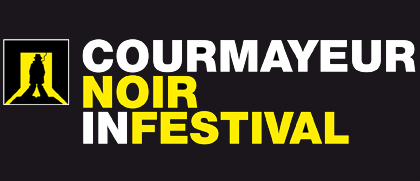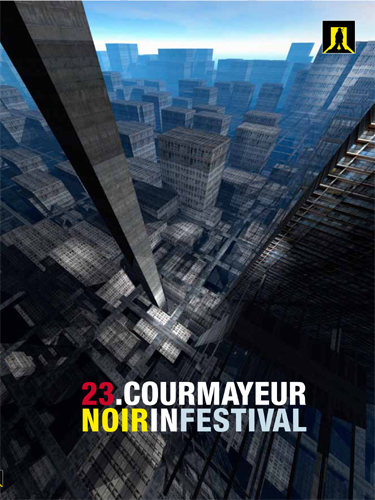The search for identity - Giorgio Gosetti and Marina Fabbri
Since its first edition, the Festival has identified itself with the ever-expanding and increasingly elusive manifestations of noir as a value and critical crux of our times, so it certainly isn’t in danger of suffering the identity crises that with growing frequency are today afflicting festivals and film and cultural events. We have always been keenly aware of our task: to observe, deconstruct, question and trace the contradictions of contemporary society through a dual investigative lens as, on the one hand, a narrative genre is periodically a social novel, popular entertainment, or a dark reflection of our times; and, on the other, a reality that is all too often was anticipated and illustrated by art and invention.
We have done so since our very beginnings, using all the expressive forms contaminated and fuelled by noir: literature, cinema, history and chronicle, new media and graphic novels, civic memory and investigation. Every year we infuse this moveable feast of styles and languages with the original force and defining characteristic of our Festival. And yet, precisely because noir is a state of mind, an iridescent reflection of the times, we feel the need to roll up our sleeves again, and broaden our confines, to ultimately return to the essence of this depiction of the real. Because never before has depicting social and existential anxiety seemed to us so appropriate in a world, an era and a culture all suffering profound identity and systemic crises.
Naturally, the selections that once again comprise the various chapters of our event are in large part dictated by luck and the support of those who have made their work and protagonists, resources and potential, available to us. Nevertheless, the 2013 edition seems to fully correspond with our expectations and hopes of offering a very special occasion for contemplation, entertainment, surprise and discovery. Therefore, we are particularly proud of a programme that is embodied by this year’s guest of honor the complex, rational, modest and socially committed Henning Mankell (this year’s Raymond Chandler Award recipient) and which unfolds in a series of original cinematic and literary events.
We arrive at the finish line of the 23rd edition in a difficult situation, not unlike many of our colleagues and our country’s cultural scene in general. Crises, recessions, reduced resources, and competition have affected everyone, and we are certainly no exception. We would therefore like to thank those who supported us once again, often with rare generosity and foresight. But we feel compelled to say that many of our choices stem from difficulties and budget cuts that we, like everyone, have suffered. There are thus fewer "historic" components of our programme, our tightened belts have become distinctive, and personal commitment was called to fill in the gaps. Nevertheless, we made sure to protect our essential elements and also make room for joyfully anomalous events (above all, the family-oriented fantasy and entertainment premieres) and those experimental sidebars for narrower audiences.
Does it make sense to carry on, perhaps detracting resources from projects the response to which is more immediate, and which are more commercially popular? We have always believed that culture and entertainment can come together perfectly in our Festival and thus give our supporters that quality and identity found in the uniqueness of noir in Courmayeur. Today, we feel weaker, but we know that our situation is not an exception; on the contrary. So we continue to stubbornly gamble precisely on that identity for which we have fortunately been recognized and acclaimed by many. However, our initial success already comes from the excellent selection of the authors and works that are the true protagonists of this year’s festival. For them, for those who work with us, for those who believe in our work, and for the audiences awaiting us once again, working on this year’s edition was a true pleasure.


